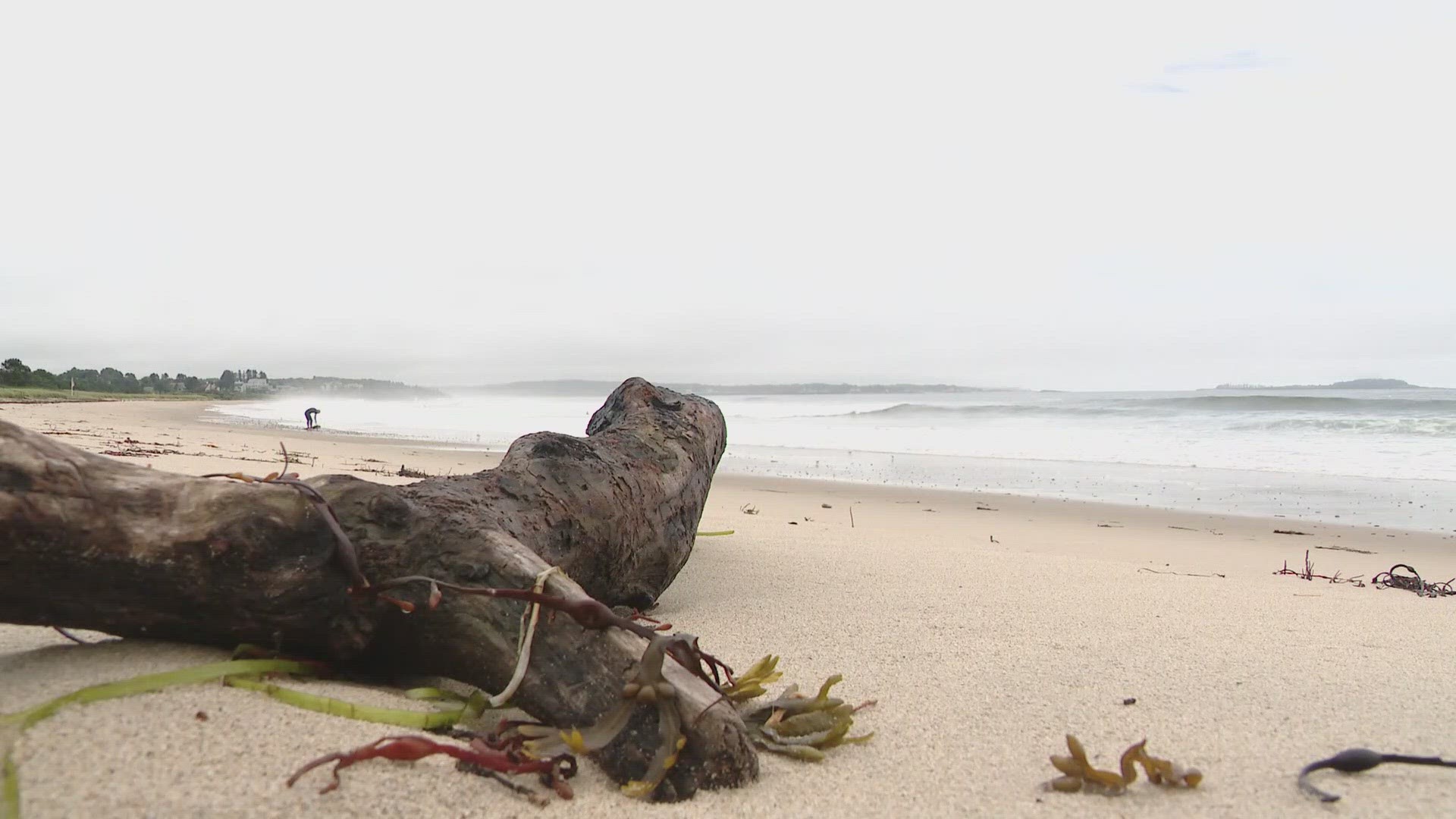PORTLAND, Maine — With the school year just beginning and fall right around the corner, Maine beaches are likely to be a hot spot this Labor Day weekend, especially with weather forecasts predicting loads of sunshine and warm summer temperatures reaching into the 80s.
But before you go, there are a few things to consider to ensure a safe and healthy visit.
Rip currents
The National Weather Service sent out an alert of intense rip currents and high tides for both York and Cumberland counties, as well as portions of New Hampshire.
Beaches listed under the alert are Old Orchard, Fortunes Rock, Wells, Ogunquit, York, Scarborough, Higgins, and Crescent.
One way for swimmers to stay vigilant is to know the signs of a rip current, even before you head out to the waves.
According to the National Weather Service, other signs are a channel of churning, choppy water, or even waterlines of sea foam, seaweed, or debris that seems to be moving out to sea.
If you are caught in a rip current, the best thing to do is stay calm and follow the current. If you can't escape, tread water until help can get to you.
Another way to stay safe is by staying in spots where you can touch the ocean floor with your feet, which can help you from being swept away by a strong current.
Click here to check the latest report on rip currents along the central and northern coast of Maine.
High bacteria levels
Maine beaches have been plagued with reports of high levels of bacteria detected during routine monitoring. According to the Maine Healthy Beaches Dashboard, the Maine Department of Environmental Protection routinely tests for fecal bacteria at participating beaches in Maine between Memorial Day and Labor Day.
As of Friday, nine sites in Maine had elevated bacteria, and six beaches were listed with a contamination advisory. When under a contamination advisory, bacteria levels may be considered unsafe, and contact with the water is not advised, according to the Maine DEP.
Most common illnesses reported from contact with the contaminated water are gastrointestinal, respiratory, or skin-related, but more serious illnesses could be possible.
The Maine DEP lists the following as several common and possible sources of water contamination for both freshwater and saltwater:
- Contaminated stormwater runoff
- Boats discharging sewage into the water
- Malfunctioning subsurface wastewater disposal or sanitary collection systems, such as a broken sewer pipe
- Diapers that were not properly disposed
- Children not properly cleaned after using the bathroom
- Swimmers with gastrointestinal problems
- High presence of wildlife or pet waste
Editor's note: The video below was published Aug. 23.
Lifeguard shortages
An ongoing challenge that is impacting Maine and water recreation spots nationwide is lifeguard shortages.
In a report by NEWS CENTER Maine in June, six out of 11 state parks in Maine had no lifeguards. (It was unclear how many state parks, recreation areas, and pools faced continued shortages as of Sept. 1.)
Lifeguards at state parks are getting enhanced rescue training as Maine deals with a lifeguard shortage that has forced some cities and towns to close some swimming areas.
The Maine State Parks lifeguard coordinator called the recent class in June 2023 the worst recruitment numbers in five seasons.
The shortage comes from a combination of factors: the pandemic prevented people from getting recertified, and fewer people are applying for the jobs than in years past, Maine State Parks Lifeguard Coordinator Sean Vaillancourt said.
The U.S. Lifeguard Association's number one tip for water safety is to swim near a lifeguard, but that's hard to do if the chairs are empty. The same goes for a nationwide shortage of lifeguards at local pools.
Remember, you swim at your own risk if a lifeguard is not present, so be as prepared as possible to ensure safety.
- Always swim in a lifeguarded area
- Never swim alone, regardless of age or level of swimming skills
- Keep within your fitness and swimming capabilities
- Be aware of weather and water conditions, and heed warnings

